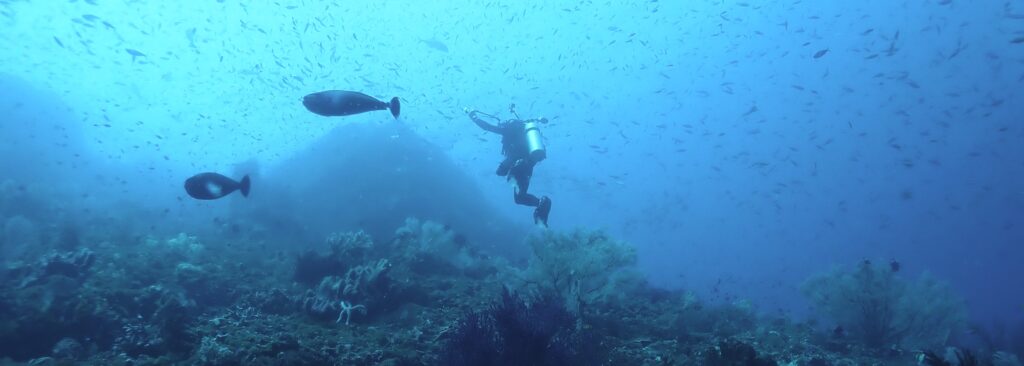Here you can find a short overview of this research program. For more information yiou can download the INREF 2020 Call Proposal.
Problem statement
The key question we address in this program is how tourism, in combination with other drivers such as climate change, fishing and pollution, will affect the ecological integrity, local livelihoods and social cohesion of these marine tourism hotspots.
Location
Current studies on social-ecological-systems and resilience of coral reefs are either on a broad conceptual level or, alternatively, are constrained by their disciplinary focus, site-specific nature and limited spatial replication. Studying replicate MPAs under different degrees of tourism development in Indonesia and the Dutch Caribbean allows the formulation of general conclusions, while in depth studies allow specification of drivers of change, threshold values and interactions. This allows intra- and interregional comparison and testing of concepts and simulations which will greatly enhance the field.
In Indonesia we will study three regions:
- Bali (Nusa Penida: mass tourism development with cruiseships)
- Eastern Moluccas (Banda & Lease Islands: moderate tourism)
- Raja Ampat (with low, but rapidly increasing tourism and access)
In the Dutch Caribbean we will study three regions:
- Aruba and Bonaire (mass tourism with cruiseships)
- Saba (moderate tourism), 3. St. Eustatius (low tourism).
The selection of the MPAs has been made based on longstanding expertise and in close collaboration with the network of the consortium. Each of the MPAs involved provide a specific and contrasting set of challenges within the Social-Ecological-Systems framework, providing a rich environment for learning and experimentation.
Objectives
General aim
Build resilience of MPAs in an age of tourism and climate change
Short term objectives (within timeframe of the project)
- Build human and institutional capacity at universities, institutes and NGOs in Indonesia and the Dutch Caribbean through joint sandwich PhDs, technical workshops and scholarships.
- Develop an interdisciplinary online education program on MPAs and social-ecological-systems within WUR, and among Indonesian and Dutch Caribbean institutions.
- Develop, assess, and implement scalable solutions to manage drivers and stressors in small island ecosystems (e.g. develop sound sanitation practices).
- Co-Develop and assess a dynamic Resilience Dashboard to monitor and track resilience indicators that (i) can be adapted as needs, stressors and available data evolve and (ii) is scalable and can be used for other social-ecological-systems.
Long term objectives (beyond timeframe of project)
- Lead and advance excellence in interdisciplinary research and education in social-ecological systems at WUR and partner institutions
- Craft a strong network and strategic international and transdisciplinary partnership of knowledge institutions, MPA authorities and management bodies, and private sector in Dutch Caribbean and Indonesia that can contribute to Research for Development and Education (RfDE) and compete for international grants on Sustainable Development Goals (SDGs)
- Contribute to healthy life below water and a sustainable use of related marine resources (SDG14), resilient coastal ecosystems to combat impacts of climate change (SDG13), methods for integration of SDGs (SDG17) though SES approach and dashboard.
Activities
The program is divided in six workpackages. in each workpackage we have defined tasks.

